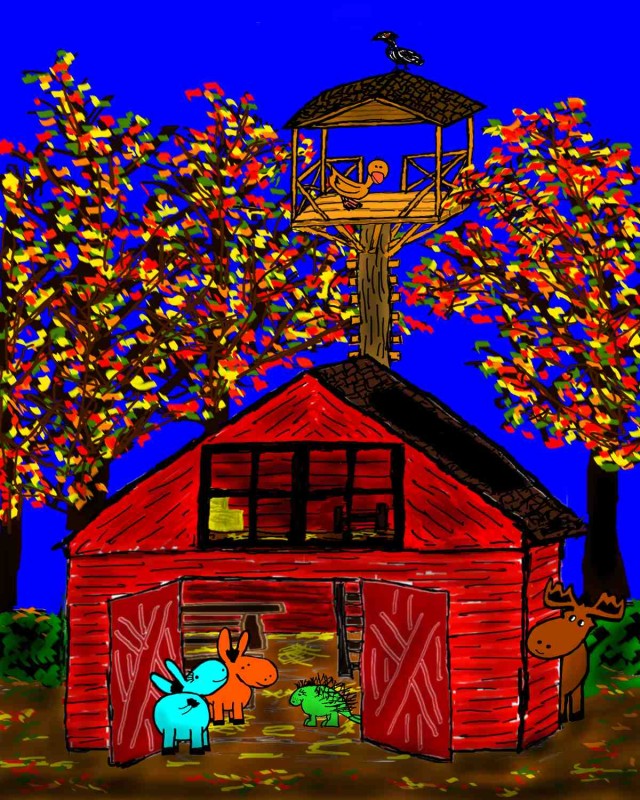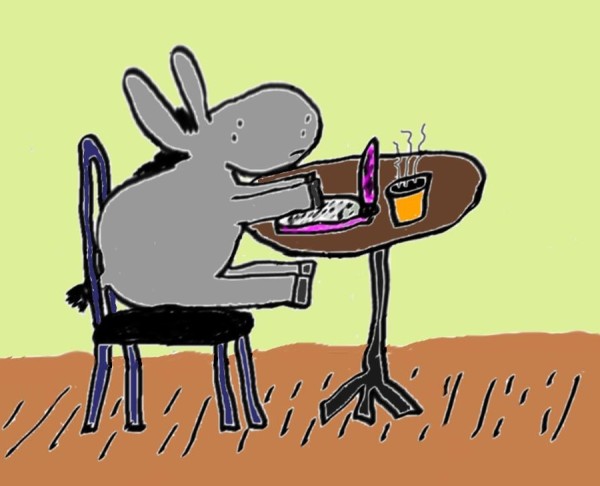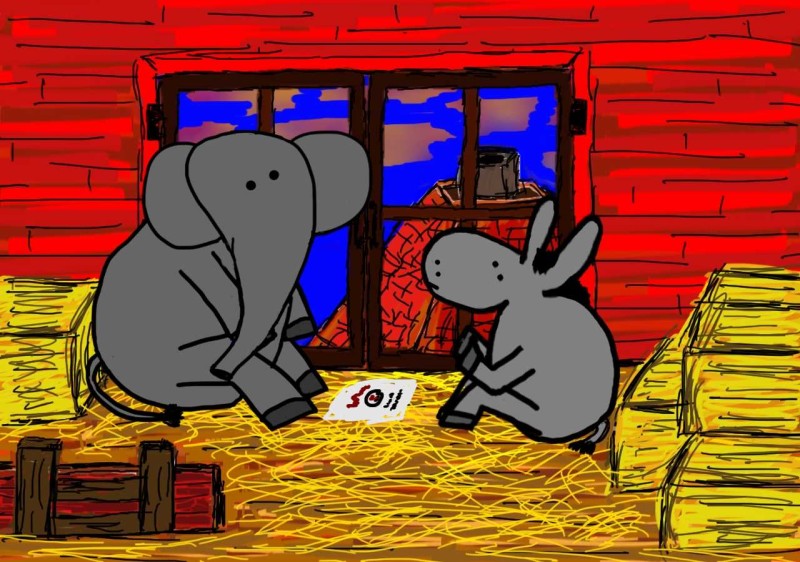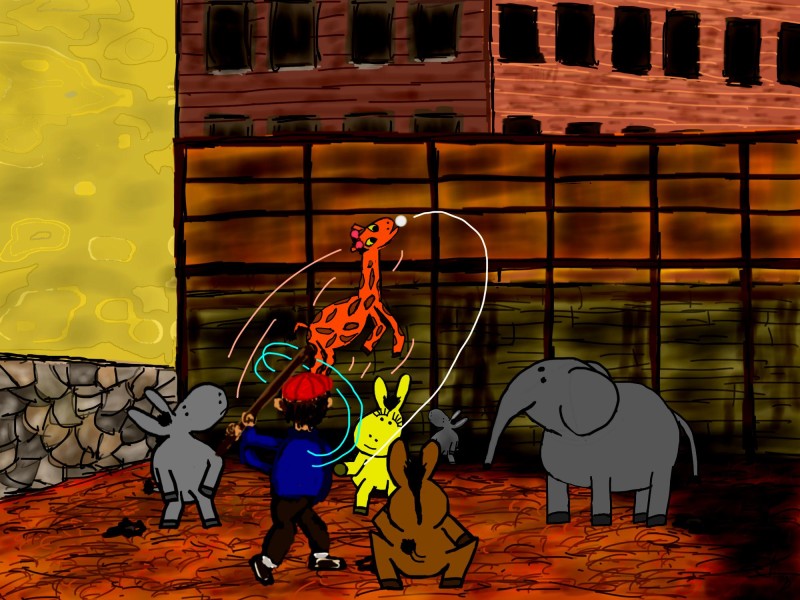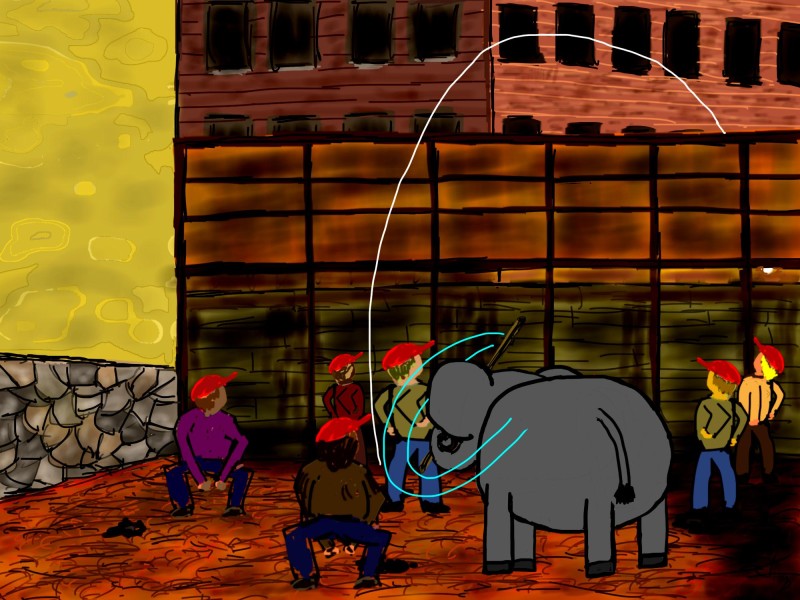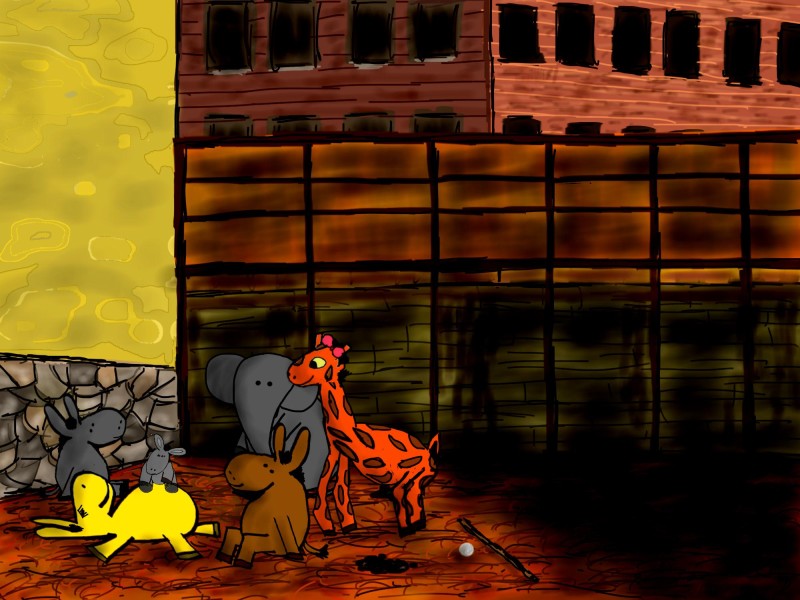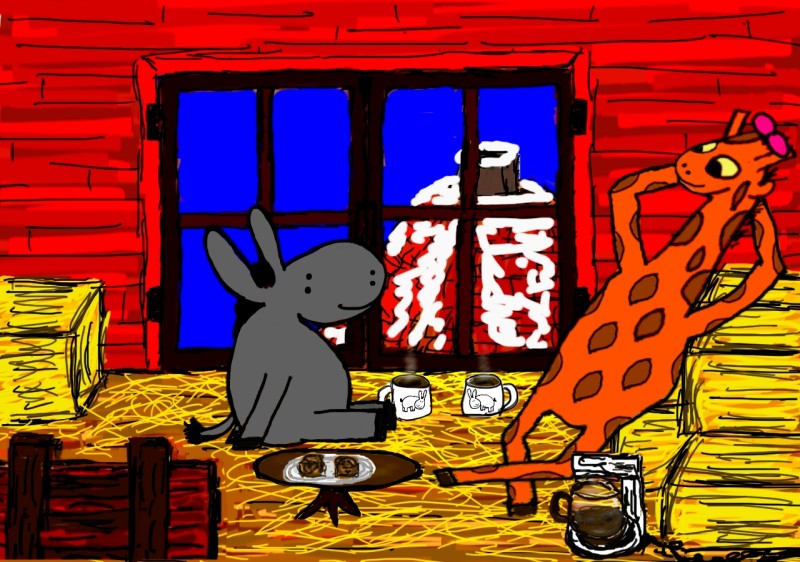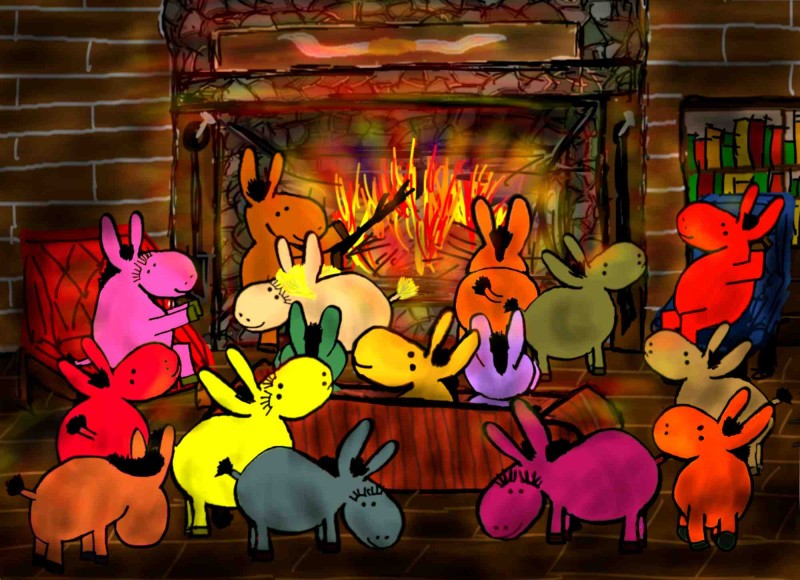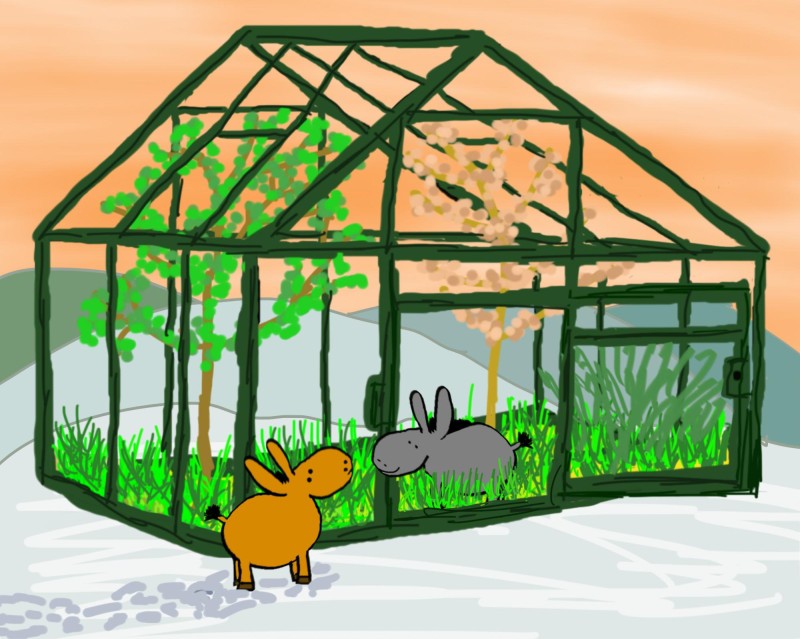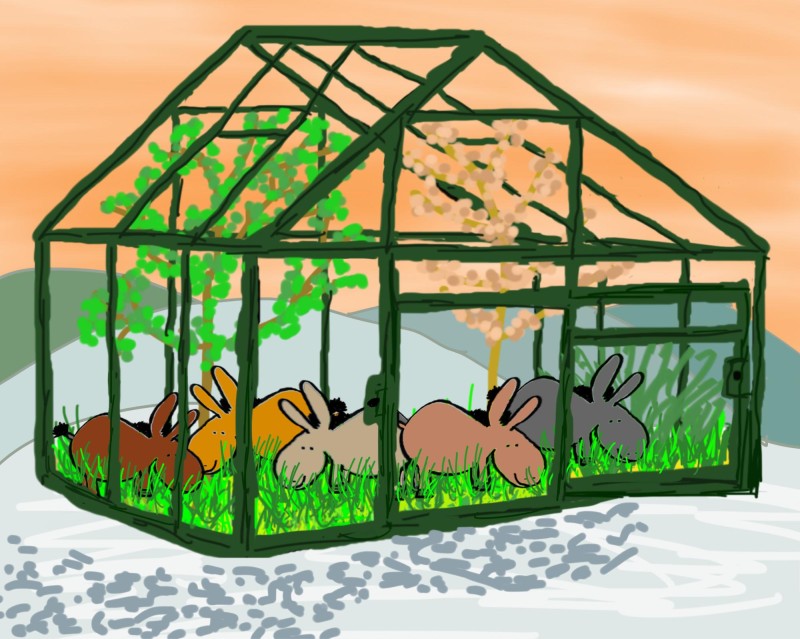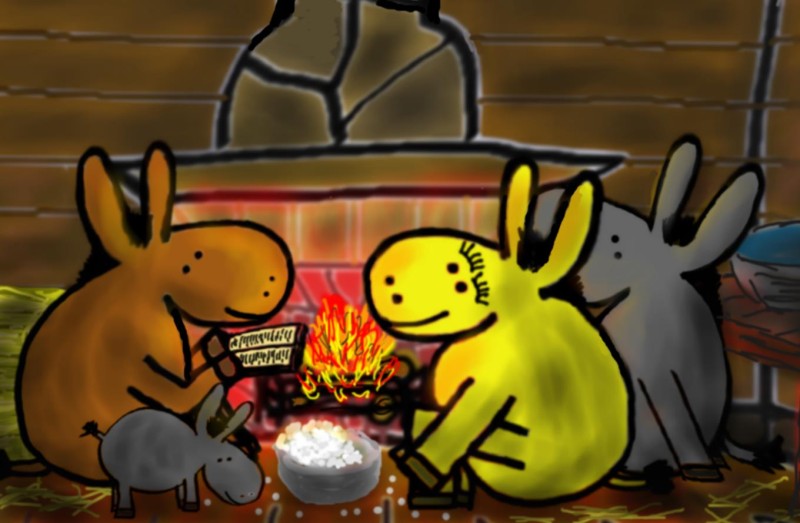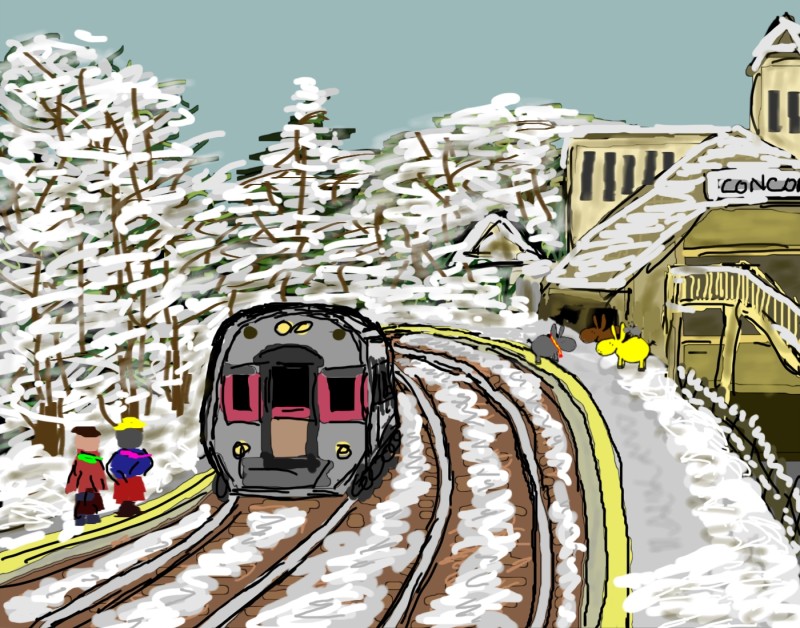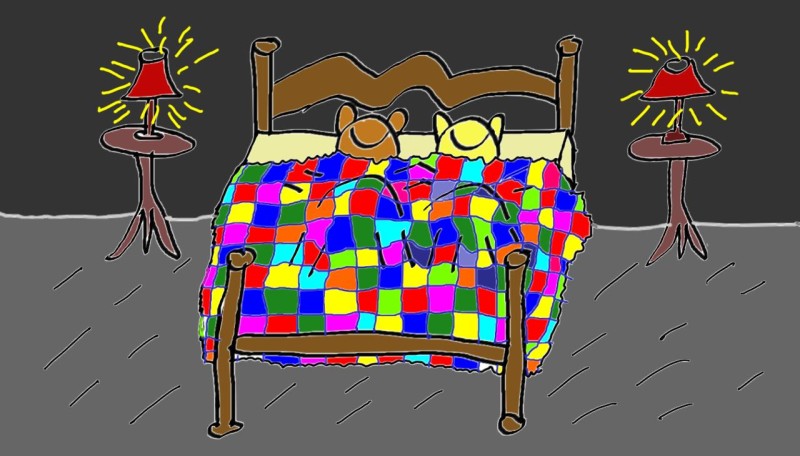Do you think we’re early? said Morton.
I don’t want to appear anxious, said Emma Lou.
Neither do I, said Chelsea.
How long should we wait? said Morton.
Until it’s time, said Emma Lou.
How will we know? said Morton.
They’ll tell us, said Emma Lou.
What if they don’t? said Morton.
Then we’ll never know, said Chelsea.
They’ll tell us, said Emma Lou, if they want us to know.
And if they don’t? said Morton.
Then they won’t tell us, said Emma Lou.
That makes sense, said Chelsea.
Where are the others? said Morton.
They’re waiting for us to decide, said Chelsea.
They don’t want to appear anxious, said Emma Lou.
What’s wrong with appearing anxious? said Morton.
It makes you look greedy, said Emma Lou.
Even if you’re willing to share? said Morton.
Maybe they want us to wait, said Chelsea.
Why? said Morton.
Because anticipation increases desire, said Emma Lou.
Yes, said Chelsea, like in the Kama Sutra.
The Kama Sutra? said Morton.
The Kama Sutra, said Chelsea, is one of the books on our reading list.
The one the moose keeps hogging? said Morton.
Yes, said Chelsea, but I managed to sneak a peak.
What does it say? said Morton.
It says that withholding pleasure increases desire, and increasing desire increases pleasure.
What if you don’t get what you desire? said Morton.
Then you still get the pleasure of anticipating, said Chelsea.
The pleasure of anticipating? said Morton.
Yes, said Chelsea, like when you spend the winter anticipating the spring fashions, and when the fashions come out, you’re a little disappointed, but at least you had the pleasure of anticipating them.
That happens for me, said Emma Lou, every season of the year.
But sometimes when you get something, said Morton, it’s as good as what you had hoped for.
That’s true, said Chelsea, but getting it doesn’t diminish the pleasure you got from anticipating it.
It teaches you, said Emma Lou, to enjoy the journey and not focus on the destination.
The destination? said Morton.
The object of desire, said Emma Lou.
We’ve waited long enough, said Morton.
You may be right, said Emma Lou.
I wonder if the others are enjoying the wait? said Chelsea.
Birds can be very patient, said Emma Lou.
That’s true, said Morton, I watched Frank sit on a fence for five hours yesterday.
You watched him for five hours? said Chelsea.
Yes, said Morton.
And you didn’t get impatient? said Chelsea.
No, said Morton, I didn’t want to eat him.
So you’re only impatient, said Emma Lou, with things you want to consume?
Yes, said Morton.
What if you’re not hungry? said Emma Lou.
There are some things I want to consume, said Morton, whether I’m hungry or not.
That’s not very healthy, said Emma Lou.
I know, said Morton.
Do you smell that? said Chelsea.
Yes, said Emma Lou, I do.
It must be time, said Chelsea.
Yes, said Emma Lou, it must be time.
Really? said Morton, I was just starting to enjoy the anticipation.
Tag: friends
“Blurtso begins to blog”
“Weohryant University” (II)
What do you think, said Harlan, of the logo for our university?
Weohryant? said Blurtso. Yes, said Harlan, pronounced “we-orient.” What does it mean? said Blurtso. It’s a word, said Harlan, made up of all the different letters in the question words “what, where, who, how, when, why”, and it’s also a combination of “we” (short for “west”) and “ohryant” (orient or “east”). And, said Blurtso, it combines U (you) and WE, which gives our university an inclusive feel. Exactly, said Harlan. What, said Blurtso, is that Roman numeral. That, said Harlan, can either be read as 967 (1000 – 33) or 33,000. Which is it? said Blurtso. It really doesn’t matter, said Harlan, as long as it expresses a sense of tradition and substance, but 33,000 B.C. is an approximate date for the beginning of written language on earth. I like it, said Blurtso, and the donkey looks attentive and energetic, while the elephant looks very professorial.
Get your official Weohryant sweatshirt at blurtsobarn
“Alex takes her friends to the street” (II)
“Blurtso goes green” (IX)
“Blurtso goes green” (VII)
Hello, said Renzo. Hello, said Blurtso. I saw you on TV, said Renzo. You did? said Blurtso. Yes, said Renzo, and I thought you might like some help. Some help? said Blurtso. Yes, said Renzo, getting your greenhouse under control… my friends and I could help you graze. Thank you, said Blurtso, that would be lovely.
“Blurtso meets Kahlil Gibran”
Kahlil Gibran, said Pablo, in the section, “On Children”, writes:
“Your children are not your children.
They are the sons and daughters of Life’s longing for itself.
They come through you but not from you,
And though they are with you yet they belong not to you.
You may give them your love but not your thoughts,
For they have their own thoughts.
You may house their bodies but not their souls,
For their souls dwell in the house of tomorrow,
which you cannot visit, not even in your dreams.
You may strive to be like them,
but seek not to make them like you.
For life goes not backward nor tarries with yesterday.”
That’s very profound, said Blurtso. Yes, it is, said Pablo.
I wonder, said Blurtso, if Gibran was a donkey in a former life?
“Blurtso visits his friends in Concord” (IV)
What a great day, said Blurtso. Yes, said Pablo, as good as it gets. What shall we do now? said Bonny. I don’t know, said Pablo. How about a story? said Bonny. Yes, said Blurtso, a story! Very well, said Pablo, I’ve been reading a novel titled, The Adventures of Captain Harvey, perhaps I could read a chapter out loud? What’s it about? said Bonny. It’s about a character, said Pablo, called Captain Harvey, who has the ability to take on the personality of whomever or whatever he encounters. Like a chameleon? said Blurtso. Yes, said Pablo, just like a chameleon. Now, in the chapter I will read Captain Harvey has arrived at a village in the mountains north of Rome, and he has been taken in by a middle-aged couple, Elio and Agnese, and their adopted servant girl, Fiammetta. Go on! said Bonny. Yes, said Blurtso, go on! Alright, said Pablo, it begins like this…
“While the days were dedicated to caring for the animals, bringing wood and water, and preparing meals, the nights were passed in front of the fire, as the four residents and whatever neighbors happened to stop in would settle down to talk. Early on, the conversation would focus on what work had been done that day, and what remained for tomorrow, and then it would turn to the latest report of rumors. At some point, Elio would excuse himself to join his friends at the bar. On this night, Agnese scolded him, ”
“Good company?” said Elio. “Fiammetta says nothing, and you and Harvey go on like old women!”
“Well!” said Agnese. “If you ever said something… Why don’t you tell a story? You used to tell such fine ones. I’m sure Harvey would enjoy one.”
As Elio paused to consider which story he might tell, a stream of protagonists, antagonists, climaxes and anticlimaxes rushed through his head, but before he could choose one, Harvey began for him:
“Filomena was fifteen years old,” said the captain, “when her grandmother told her, ‘If you want your child to be a boy, you must sleep on your right side and have your midwife use water in which a murderer has washed his hands…’”
Elio was relieved, for he was too tired to make something up, and he liked having stories told him, because then it was real and not just remembering, so he put a log on the fire and sat back down in his place.
The story Harvey told, though taken directly from Elio’s memory, was not as Elio remembered it, for just as the log began to crackle and whine in the fire, it altered the captain’s tale until the listeners could hear the cracking of a whip, or the cries of a forsaken child, or the moans of an impassioned lover. What our hero told, in fact, was the history of the life of the log, of its stored energies released into the arms of the air. The listeners were enthralled. Even the romantic encounters, which surprised them with their attention to detail, were done with such delicacy that Agnese could not be offended, and Fiammetta moved into the light.
The group would listen, apprehensively at first, wondering if he would improvise or tell a stock tale from one of their memories. If it was early, he would spin the yarn leisurely, amplifying here and interpolating there, always going on in a steady, gentle voice, except when he impersonated a man or woman in the throes of passion or a demon in a fit of rage. Then he would pause, anticipating with his silence the pleasure certain to come, and as the fire began to wane the pauses would become shorter and less frequent, and he would bring the story to an end, reuniting lost lovers or reconciling the hero to his fate, and leaving the group with a feeling at once of fulfillment and loss.
Each story was different, taking its theme from the nature of the wood. There were stories of those who reached the happy end they had sought, or those who obtained what they desired or regained what they had lost, or those for whom love had an unhappy ending, or those who won happiness after grief and misfortune. And there were the stock tales of the tricks played by men upon women, or women upon men, or men upon men and women upon women, and each was born of the same fiery source. It was not long before Harvey began to look at everyone he met in terms of the fire. What kind of flame was Elio? Was his wood slow and deep, or superficial and smoldering at the edges? What was Agnese? What was Fiammetta? What was he…?
“Blurtso visits his friends in Concord” (I)
Welcome! said Bonny Bray. I’ve got a great evening planned! First we’ll go shopping, then we’ll eat dinner, then we can have cocoa at the Colonial Inn. I’ve booked a double room with an extra bale of hay!
Mmm, said Pablo. Mmmmm, said Bonny. Will you tell me a story? said Pablo. A story? said Bonny. Yes, said Pablo, a bedtime story about two donkeys that snuggle under the covers. Warm covers? said Bonny. Yes, said Pablo, very warm covers.
“Blurtso jumps” (IV)
Where are the reporters, said Alex, and the paparazzi? They’re gone, said Blurtso. Why? said Alex. Because the Olympic Committee disqualified my jump. Why? said Alex. Because I jumped on four hooves, said Blurtso, and they said the binding attaching my front hooves to the skis made it easier to keep my tips up, which gave me greater lift, and resulted in the world record. And I was also disqualified because I’m a donkey. Well, said Alex, don’t feel too bad, the Olympic Committee didn’t allow women to ski jump in the Olympics until 2014. What?! said Blurtso. Yes, said Alex. That’s shameless discrimination, said Blurtso, do you think they’ll ever let donkeys jump? No, said Alex, but if they do, the story of your record will be a great inspiration. Really? said Blurtso. Sure, said Alex, you’re a pioneer. Wow, said Blurtso, like Babe the blue ox!
